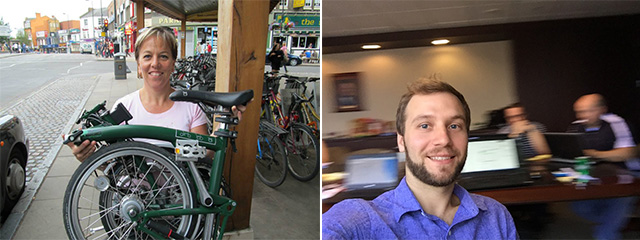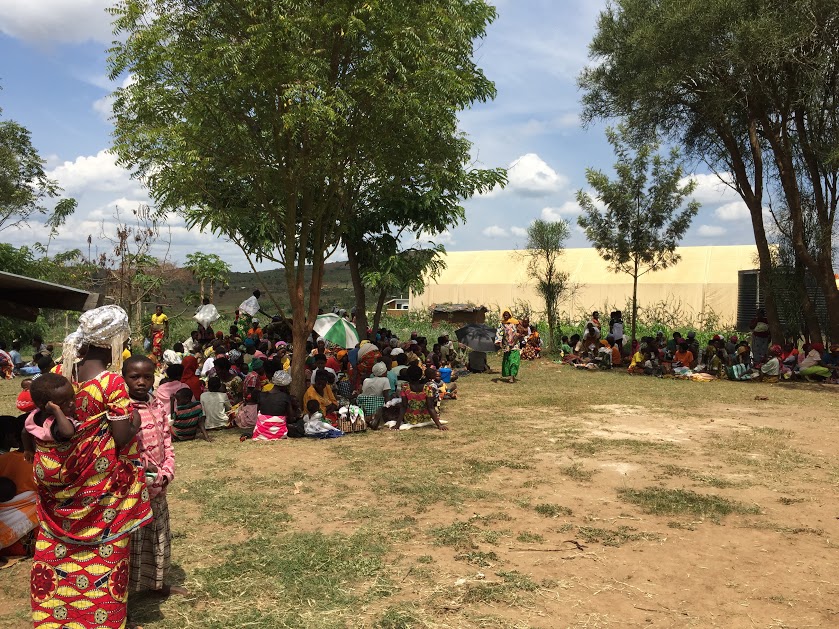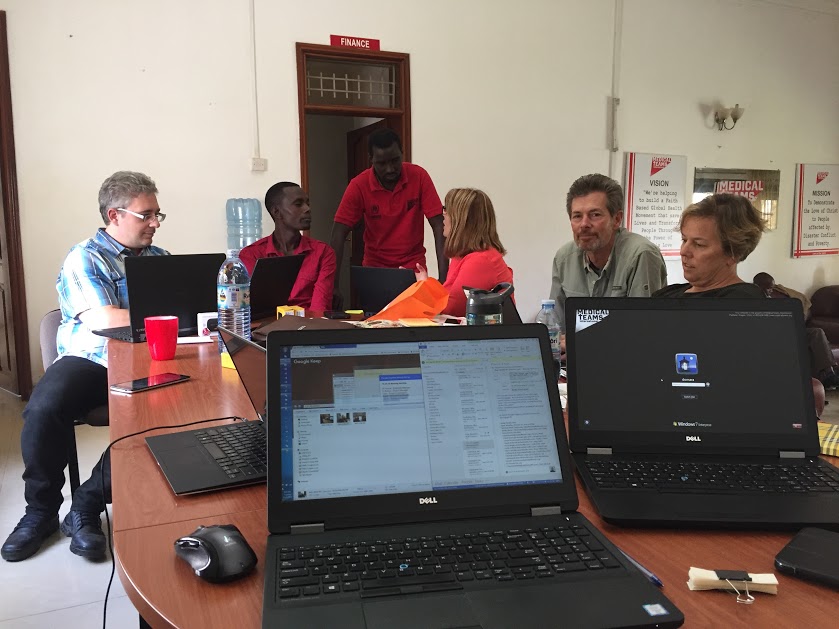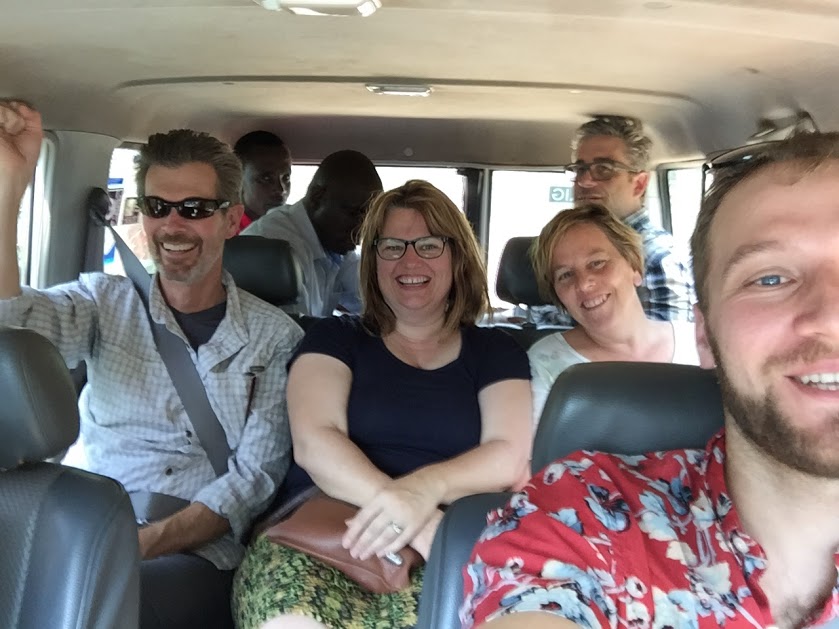Cambia’s journey to Uganda began this time last year, when seven employees traveled with Medical Teams International to visit its Ugandan refugee health clinics and help create a technology solution to record patient medical data.
Through interviewing, observing and listening to the clinicians’ needs, the team was able to develop a solution that would allow clinics to go from recording data with pen and paper, to using a prototype Android app accessed via a touch-screen tablet.
This year, Cambia and Medical Teams are back in Uganda to refine the app and roll out implementation. Cambia employees Ivan Lebed and Cathi Row are traveling with the team as skilled volunteers to focus on user experience, adaptability and change management. They’ll also help train the Ugandan tech-support and clinic staff to use and manage the application.
Employees Cathi Row (left), Ivan Lebed (right)
Cathi and Ivan will be sharing their experiences and updates throughout the trip. Below, Ivan shares his experiences from the team’s first three days (Oct. 24–26, 2016) in Uganda:
Day 1: 10/24/2016
Today, we met with Dr. Robert and other Medical Teams staff in the Mbarara office. We also went to the Rubondo, Shungyazi, and Nachevale clinics.
Rubondo is a small facility. They were doing the nutrition day, so there were a lot of people at the site. Since the nutrition department was so busy, a staff person from another department was helping out by performing the nutritional education with a loudspeaker while people wait. Educator and entertainer.
We also hung out with a clinician named Prim for a bit, as he was helping a patient. The patient was a small baby in the hands of her mother. As he continued, the suspected diagnosis was malaria, and the patient was referred to the lab to confirm through test.
We then got in the car and went to Nachevale, where we briefly met with Dr. Kapuku. Since Nachevale is very busy usually, we didn't want to hold him up too long, so we went to Shungyazi next.
In Shungyazi, we met with Dixon, a clinician, who took the time out of his schedule to meet with us and show us around, while people stayed waiting in line. We had more questions for Dixon since Shungyazi facility was bigger and the processes were slightly different from Rubondo.
Day 2: 10/25/2016
We began the day meeting at the MTI office in Mbarara and had a long discussion about requirements of the project overall, and issues around offline date availability. Our concerns were addressed and worries were relieved.
After that, we spent the day preparing training materials and making last adjustments. We put together the tablet kits, containing equipment to store, charge and care for the tablets. The actual tablets were still being held by the customs department at the airport, with no update in when they were going to be released.
Meanwhile, other team members came back from their shopping trip with hotspot devices. They were initially given a 3-hour estimate to complete the trip, but they got done in 2 hours and rightfully deserved the applause they received.
We had lunch of local food cooked here at the office. Matooke, beans, rice, greens, porridge, beef meat with stomach.
Later, some of the team went to Shungyazi clinic to set up the hot spots and tablet kits.
Day 3: 10/26/2016
Today, we held training at Shungyazi and Rubondo with the two test tablets. The tablets are still being held in customs at the airport, even though we’ve made the payment they required and confirmed they received it. Hopefully we’ll get them tomorrow. Still, the training went well, and staff were excited.
We met with Amos, a refugee settlement commandant at Rubondo OPM. We showed him the app, he was pleased, and pledged his support. He also wanted to go out to the field to see tablets in action, which we were surprised to hear, and asked to schedule a visit for him when we have the tablets at a later time.
The Nakivale OPM office was busy that day, so we will schedule another visit later.
The Rubondo training went even better. The staff were curious and diligent. Even the custodian was present for the training. We then also trained Lidia, the data clerk, on using the reports. The hotspot connection was available behind the diesel power generator (which was running during the day, since there isn't a power line to Rubondo—it’s very loud), so we were able to get the report from today on my phone and show the visits that the staff entered during the training and short live trial. Julius performed the training with Lidia, as he is the primary support on the ground in Uganda. He has very good people skills.
The ride back was bumpy and cozy, since there were 7 of us in the truck.
Check back for more updates from Cathi and Ivan throughout their trip. You can also follow along on social media using the #techpossible hashtag. To learn more about this project and Cambia’s partnership with Medical Teams:



